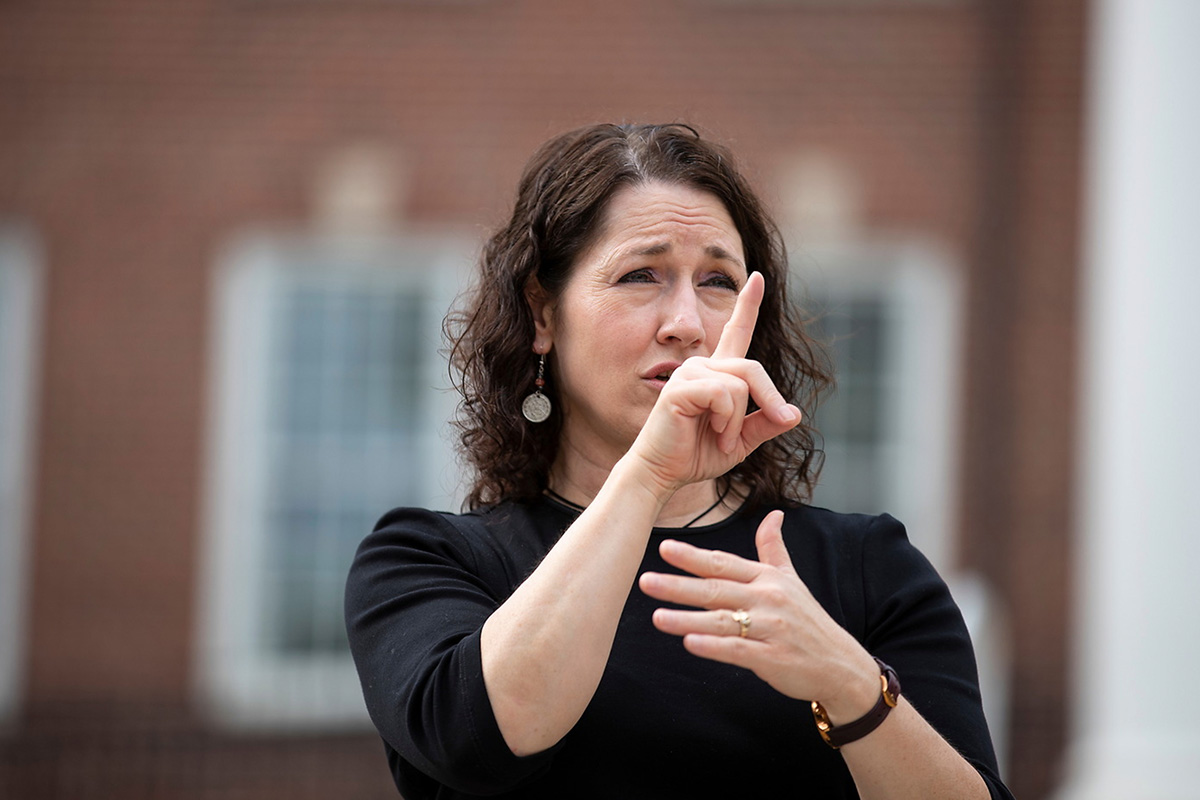American Sign Language Minor Thrives in First Year
- contact: College of Education, Health, and Human Sciences
- email: unocehhs@unomaha.edu

This story appeared in the most recent issue of the College of Education, Health, and Human Sciences Annual Report.
The Department of Special Education and Communication Disorders recently celebrated the launch of its new American Sign Language (ASL) minor.
The first three students to graduate with the ASL minor completed their degrees during Spring Semester, marking an important milestone for the program. The minor was developed in response to a growing demand from students who initially took ASL to fulfill their World Language requirement and wanted to continue their studies.
"Many students were eager to keep learning and engaging with the Deaf and Hard-of-Hearing (D/HH) community, but existing pathways like becoming an interpreter or a teacher of the D/HH did not fit everyone’s goals," explained Associate Professor Julie Delkamiller, Ed.D., one of the program’s founding faculty members. Recognizing this need, she and faculty member Jonathan Scherling collaborated to create a minor that allows students from any career path to incorporate ASL into their degree plans, opening new doors for professional and personal growth.
For Brynn Golden, one of the first three students to graduate with the ASL minor, the program has been an essential step toward her career goals. "I will use ASL in my future career as a speech-language pathologist," she said, adding that ASL was her favorite class each semester. She emphasized the importance of language exposure, saying she aims to work with Deaf individuals with language disorders using ASL rather than focusing solely on speech. "I wanted to immerse myself more in learning the history and culture," said Brynn.
"Learning ASL has exposed me to a perspective I didn't know much about before and has strengthened my communication skills in a unique way."
The curriculum includes five courses of ASL, a Deaf Studies class, and a semester of the Linguistics of ASL, all taught by Deaf instructors. Students explore the sociological and linguistic aspects within the context of Deaf history and culture, complementing a wide range of majors and career paths. The program’s approach ensures students not only learn the language but also appreciate the cultural context in which it exists. Extracurricular activities, such as those organized by the student group Allies for Sign Language, provide hands-on experience and meaningful engagement with the D/HH community.
While the ASL minor does not prepare students to become teachers or interpreters, it equips them with a deeper understanding of linguistic diversity and challenges their existing perceptions of communication. As Dr. Delkamiller noted, "It’s exciting to see how this awareness creates a ripple effect, influencing not just the students but also their families, friends, clients, and co-workers."
With its dedicated faculty, diverse student body, and rich extracurricular offerings, the ASL minor is helping to foster an inclusive and supportive environment where students can develop the skills to communicate effectively with Deaf individuals.

What our alumni are saying...
"Learning ASL has exposed me to a perspective I didn't know much about before and has strengthened my communication skills in a unique way. It would be wonderful if the skill becomes beneficial in my future as a law student and beyond."
- Abigail Williamson, BA in Philosophy and English, ‘24